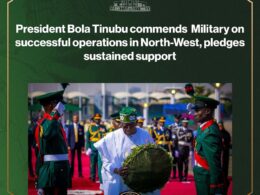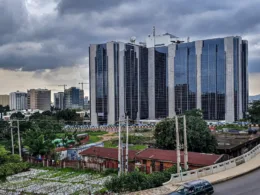Nigeria Recognized for Affordable Mobile Data Costs, But Telecom Operators Seek Rate Increases
The International Telecommunications Union (ITU) has highlighted Nigeria’s remarkable status in providing affordable mobile data services, according to a recent report from the Global System for Mobile Communications Association (GSMA). The report, titled “The Role of Mobile Technology in Driving Digital Economy in Nigeria,” underscores the cost-effective connectivity options available to users across the country.
The ITU revealed that Nigeria’s average cost of mobile data stands at an impressive $0.38 per gigabyte, making it the most affordable in West Africa and among the lowest globally. The ITU noted, “The cost in Nigeria represents a small percentage of GNI (per capita), and its basic data-only packages are significantly cheaper compared to the average rates in Africa.”
In comparison with other African nations, Nigeria outshines countries like Kenya with an average of $0.59 per gigabyte, Ethiopia at $0.68 per gigabyte, and South Africa, where the average is $1.77 per gigabyte. Notably, mobile data in the United States costs about $6 per gigabyte.
Despite these competitive and consumer-friendly rates, Nigerian telecom operators are advocating for an increase in tariffs to tackle the mounting challenges posed by currency devaluation, inflation, and the broader economic downturn faced by the country in recent months.
MTN Nigeria’s Chief Executive Officer, Dr. Karl Toriola, expressed his concerns in a recent interview, stating that 2024 proved to be an extremely challenging year for the telecom sector. “As the largest operators, we were somewhat more resilient, but it has been very difficult,” he remarked.
Toriola identified several significant factors contributing to the industry’s struggles in 2024, including soaring operational costs that now surpass revenues. He attributed these difficulties largely to rapid currency devaluation and inflation. The proposed tariff adjustments, he explained, would allow telecom operators to reinvest in their networks, enhancing the quality and reliability of services. “What the tariff increase facilitates is our ability to continue reinvesting in infrastructure, including upgrading generators and implementing alternative power supply systems for more stable and high-quality networks,” Toriola noted.
In response to the situation, the Federal Government has acknowledged the necessity for tariff adjustments while assuring the public that any increases would be moderate and far from the 100 percent raise requested by telecom operators.
As conversations progress regarding the future of Nigeria’s telecommunications industry, stakeholders aim to find a balance between maintaining the sector’s operational viability and ensuring consumer affordability. The ultimate goal remains to foster a thriving digital environment that remains accessible for all Nigerians.










Join our Channel...